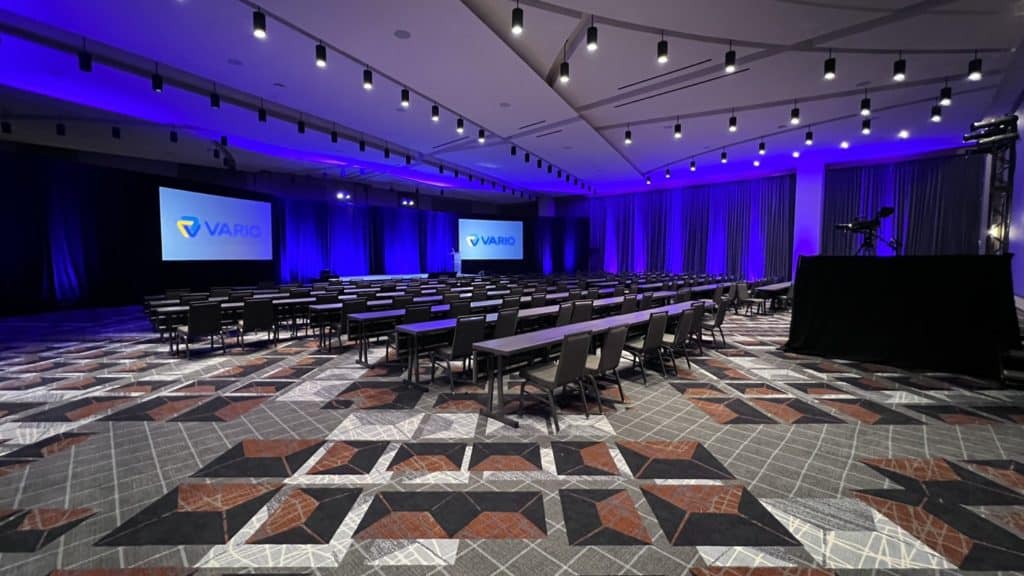10 ways charlotte event companies elevate corporate identity
Wiki Article
A Deep Dive Into How Event Management Works to Develop Memorable Experiences
Event management is a complex discipline that combines numerous aspects to craft extraordinary experiences. It requires a clear understanding of the event's function and target market. Planners need to browse budgeting, logistics, and advertising and marketing to assure a seamless execution. Each element plays a vital duty in achieving the preferred influence. The trip does not end with the event itself. There are insights to discover that can form future endeavors.The Basics of Event Management
Reliable event management includes a variety of vital concepts that lead the planning and execution of successful occasions. At its core, it entails understanding the event's function, target market, and wanted outcomes. Identifying the target market is essential, as it informs decisions related to material, advertising and marketing, and logistics.Budgeting is one more basic facet, assuring that sources are allocated efficiently while meeting the event's goals. This includes planning for unanticipated expenditures that might emerge.
Time management plays an important role, as event managers should establish an in-depth timeline to coordinate various tasks and milestones.
Additionally, effective communication amongst stakeholders, suppliers, and staff member is necessary to guarantee alignment and avoid misconceptions.
Risk management must be taken into consideration, with contingency plans in location to deal with possible difficulties, thus enhancing the general experience for attendees and assuring a seamless implementation of the event.
Trick Duties in Event Planning
In event preparation, comprehending essential duties is crucial for successful implementation. The event organizer is responsible for supervising logistics and guaranteeing all elements line up with the vision. Additionally, reliable supplier management is crucial for keeping quality and cultivating strong collaborations throughout the preparation procedure.Event Planner Duties
An event organizer orchestrates the complicated components of event preparation, ensuring smooth implementation from conception to final thought. They are responsible for conceptualizing the event motif, establishing budgets, and producing timelines to maintain the task on track. Sychronisation with stakeholders, consisting of customers, venue managers, and volunteers, is vital to align assumptions and help with interaction. The organizer additionally oversees logistics, such as food catering, transportation, and innovation needs, ensuring all components function harmoniously. They carry out website brows through, manage schedules, and troubleshoot issues that might occur during the event. Post-event, the organizer examines the event's success, collecting responses and assessing outcomes to educate future jobs. This complex role requires strong business abilities, focus to information, and reliable social communication.Vendor Management Fundamentals
Steering via the landscape of supplier management is essential for successful event planning. Effective vendor management entails identifying, picking, and collaborating providers who provide crucial services, such as catering, audiovisual assistance, and decor. Event planners must maintain solid communication with vendors to assure that all facets line up with the event's vision. Key roles consist of the supplier supervisor, who oversees agreements and settlements, and the logistics organizer, responsible for on-site arrangement and implementation. It's critical to develop clear assumptions and timelines, promoting a collaborative setting that improves the overall experience. By prioritizing these components, event planners can browse prospective challenges, guaranteeing that every information contributes to a smooth and remarkable event.Crafting a Vision: Concept Growth

When a vision is developed, it comes to be necessary to equate it right into workable parts. This consists of defining the environment, picking appropriate venues, more info here and establishing the event's design. Collaborating with stakeholders, consisting of enrollers and companions, further improves the idea, making certain that all parties share a combined understanding of the event's function. Eventually, a strong vision not just boosts participant involvement however likewise establishes the phase for memorable experiences that resonate long after the event concludes.
Budgeting and Source Appropriation
With a clear vision in position, the next step in event management involves careful budgeting and source appropriation. This crucial phase guarantees that all necessary elements are moneyed and lined up with the event's purposes. Event managers start by approximating expenses linked with place option, event catering, enjoyment, and advertising. They develop a detailed spending plan that describes each category, enabling openness and liability.Resource allotment extends past financial resources; it likewise encompasses human sources. Recognizing team roles, duties, and timelines is vital to ensure effectiveness. Event managers must additionally think about backups for unforeseen expenses or adjustments in range, establishing a barrier within the budget go to my blog plan.
Furthermore, focusing on costs on elements that improve guest experiences is critical. By purposefully designating resources, event supervisors make best use of effect while maintaining monetary control. This disciplined strategy not just promotes effective occasions however also builds trustworthiness and trust with stakeholders and participants.
Logistics: The Foundation of Event Implementation
While budgeting prepares for an event, logistics work as its backbone, guaranteeing that every element is implemented smoothly and effectively. charlotte event companies. This incorporates a wide array of activities, consisting of location selection, transport arrangements, and equipment purchase. Reliable logistics management requires precise planning and control to guarantee that all elements align with the event's timeline and goalsTrick parts of logistics include supply management, where supplies and products are tracked to prevent lacks, and staffing, which involves recruiting and training personnel to handle various tasks. Communication is also essential, as it assists in partnership amongst vendors, enrollers, and the event team.

Advertising And Marketing and Promotion Techniques
Efficient advertising and promo strategies are essential for optimizing participation and interaction their explanation at an event, as they create interest and excitement among potential individuals. Event supervisors employ a mix of conventional and digital marketing strategies to reach their target market. Social media site systems, email campaigns, and targeted advertisements are generally used to produce buzz and foster neighborhood communication. Partnerships with influencers or sector leaders can improve integrity, while engaging material such as videos and endorsements can resonate with potential participants.Furthermore, leveraging event-specific hashtags and creating shareable graphics urges organic promotion amongst attendees. Early riser ticket offers and exclusive promos can incentivize registration, in addition increasing interest. A well-designed website that supplies simple navigating and clear details regarding the event can boost the customer experience. By executing these marketing and promotion approaches, event managers can guarantee higher presence and inevitably create a remarkable experience for all participants.

Gauging Success: Comments and Evaluation
Success in event management depends upon robust comments and examination mechanisms. These processes are vital for establishing the performance of an event and determining locations for improvement. By collecting input from participants, coordinators can evaluate contentment levels, understand preferences, and gauge general influence. Surveys and meetings act as valuable devices for accumulating quantitative and qualitative information, allowing for detailed analysis.Additionally, examining key performance signs (KPIs) such as presence rates, interaction degrees, and roi (ROI) offers a more clear image of event success. Post-event debriefing sessions with the planning group likewise add insights, cultivating a society of continuous enhancement.
Inevitably, a systematic approach to comments and analysis not just enhances future events however likewise reinforces partnerships with stakeholders. By implementing these strategies, event managers can produce unforgettable experiences that resonate with participants and drive continuous engagement.
Often Asked Inquiries
Just How Do Event Supervisors Take Care Of Unanticipated Obstacles During an Event?
Event supervisors attend to unforeseen difficulties by staying calmness, examining the circumstance, and carrying out contingency plans - charlotte event companies. They interact efficiently with their team, adapt quickly, and focus on services to assure the event proceeds efficiently and efficientlyWhat Modern Technology Devices Are Necessary for Modern Event Management?
Necessary innovation tools for modern event management consist of event enrollment software application, project management applications, attendee involvement systems, and analytics tools. These sources simplify processes, enhance interaction, and enhance overall event experiences for coordinators and individuals alike.Just How Do Social Differences Influence Event Preparation and Execution?
Social differences greatly affect event planning and implementation. They impact themes, personalizeds, interaction designs, and expectations, demanding tailored strategies to ensure inclusivity and regard, eventually shaping the general experience and success of the event.What Are the Ethical Factors To Consider in Event Management?
Ethical factors to consider in event management incorporate transparency, sustainability, cultural sensitivity, and inclusivity. Coordinators have to prioritize justness, regard varied audiences, minimize environmental influence, and warranty ease of access to create responsible and remarkable experiences for all individuals.How Can Sustainability Be Integrated Into Event Planning?
Sustainability can be incorporated into event planning by using eco-friendly products, minimizing waste, sourcing local vendors, implementing carbon offset programs, and promoting electronic solutions to lower paper use, thereby improving ecological consciousness within the event's framework.Report this wiki page